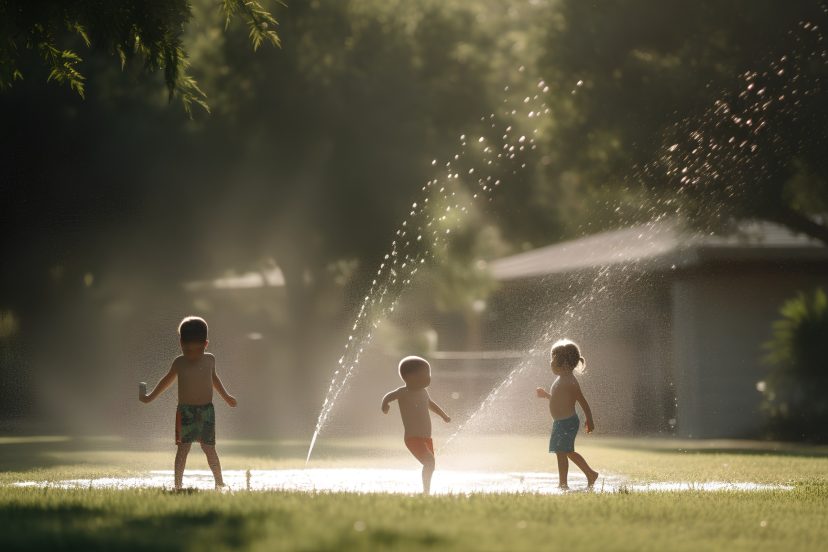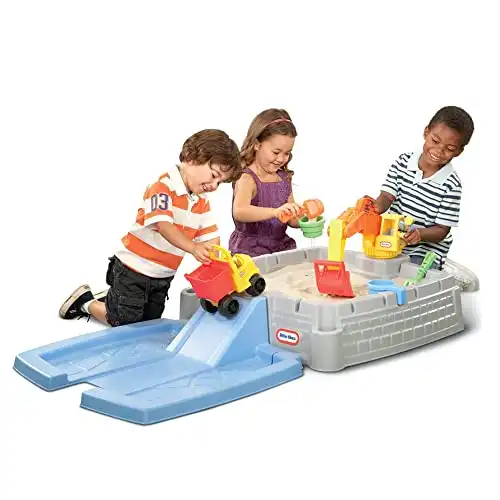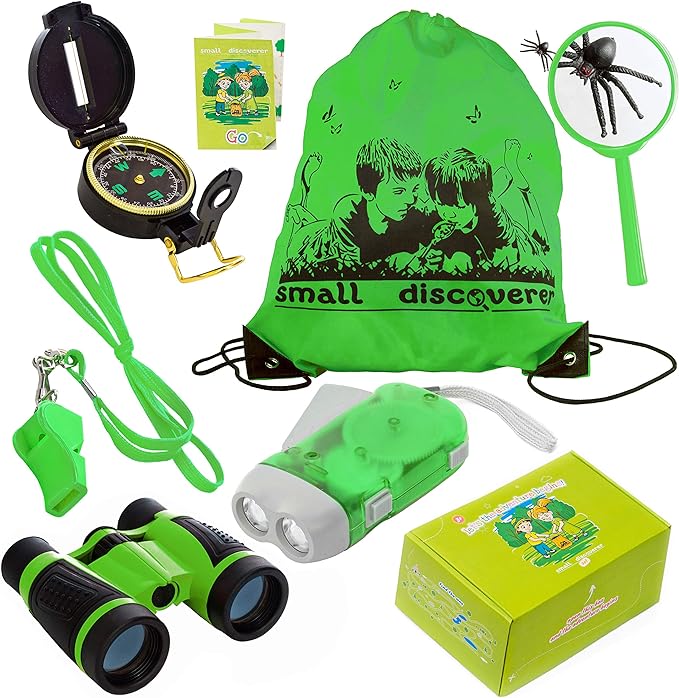Outdoor Play And The Benefits For Child Development
In today’s digital age, where screens dominate our daily routines, it has become increasingly important to encourage children to engage in outdoor play. I LOVE the outdoors and my kids also LOVE to spend as much time outside as they can!. In this article I am excited to share the numerous benefits that outdoor play brings to children’s lives from physical health benefits to cognitive development and social skills. Let’s dive in!
The Importance of Outdoor Play
Outdoor play holds a crucial place in children’s lives, providing them with a myriad of benefits that contribute to their overall well-being. It is an opportunity for children to explore the natural world, develop their physical abilities, and foster their creativity. By engaging in outdoor play, children can experience the following advantages:
Physical Health Benefits
Outdoor play offers an array of physical health benefits for children. It allows them to engage in active movements, promoting physical fitness and reducing the risk of obesity. Through activities such as running, jumping, and climbing, children develop their motor skills, coordination, and balance. Exposure to sunlight also enables the body to produce Vitamin D, essential for strong bones and a healthy immune system.
Mental and Emotional Well-being
Spending time outdoors has a positive impact on children’s mental and emotional well-being. Nature provides a calming and nurturing environment that helps reduce stress and anxiety. Outdoor play stimulates the release of endorphins, boosting mood and promoting a sense of happiness. It allows children to disconnect from technology, fostering mindfulness and enhancing their ability to focus and concentrate.
Cognitive Development
Outdoor play plays a vital role in children’s cognitive development. The natural environment offers endless opportunities for exploration, problem-solving, and critical thinking. It stimulates their curiosity and enhances their ability to observe, investigate, and make connections. Nature-based play encourages imagination and creativity, as children engage in open-ended activities and create their own worlds.
Improves Social Skills and Interactions
Engaging in outdoor activities facilitates the development of essential social skills. Children learn to interact and cooperate with others, building relationships and fostering a sense of belonging. Through collaborative outdoor activities, such as building forts or playing team sports, they learn the importance of teamwork, communication, and compromise. Outdoor play also presents opportunities for conflict resolution and negotiation, preparing children for real-life situations.
Nature Connection and Environmental Awareness
Playing Outdoors allows children to establish a deep connection with nature and develop a sense of environmental awareness. Exploring natural spaces exposes them to the wonders of the world, instilling a sense of curiosity, respect, and responsibility towards the environment. By immersing themselves in nature, children learn about biodiversity, ecosystems, and sustainable practices, nurturing their role as future caretakers of the planet.

Foster Creativity and Imagination
Outdoor play sparks creativity and imagination in children especially when combines with creative toys. Unstructured play in natural environments stimulates their inventiveness as they transform sticks into magic wands or rocks into imaginary creatures. Nature’s ever-changing elements inspire children to create stories, engage in pretend play, and explore their artistic abilities. Encourage them to think outside the box and foster innovation and originality.
Improved Problem-Solving Skills
Through outdoor play, children develop essential problem-solving skills. Nature presents challenges and obstacles that require them to think critically and find solutions. Whether it’s building a bridge over a stream or figuring out how to climb a tree, children learn to assess risks, develop strategies, and persevere in the face of difficulties. These problem-solving experiences build resilience and resourcefulness, preparing children for future challenges.
Risk Management and Resilience
Exposing your children to various different activities will encourage them to engage in appropriate risk-taking, which is essential for their development. By exploring their limits and pushing boundaries in a supervised environment, children learn to assess risks and make informed decisions. This builds their resilience, self-confidence, and the ability to cope with adversity. Understanding their own capabilities and limitations fosters a balanced approach to risk-taking in various aspects of life.
Overcoming Challenges
While playing outdoors brings numerous benefits, there may be challenges along the way. Limited access to safe outdoor spaces, weather conditions, or time constraints can sometimes pose obstacles. However, exploring alternative options, such as local parks, community centers, or nature-focused programs, can help overcome these challenges. Embracing outdoor play as a priority and actively seeking opportunities for children’s engagement will ensure they can experience its benefits
Parent/Child Bonding
Parents play a vital role in encouraging and supporting their children to play outside. By actively participating in outdoor activities, parents can strengthen the parent-child bond, create lasting memories, and serve as positive role models. Outdoor play can be great for family fun time explore where you can all visit local parks, or engage in nature-based projects together. Parental involvement fosters a love for being outdoors and encourages children to embrace the natural world.
Ideas for Outdoor Play Activities
Now lets dive into our expansive list of innovative and stimulating outdoor play activities, designed to captivate and nurture young minds while fostering essential developmental skills and promoting physical well-being among children of diverse ages.
Climbing Domes and Sets
Climbing equipment like the Eezy Peezy Monkey Bars Climbing Tower is great for encouraging active play and enhancing motor skills, balance, and coordination in children aged 3-9.
The Durable Interlocking plastic tubes and connectors with double self-locking springs make this set hard-wearing and tough, yet surprisingly lightweight and easy to assemble
Sand Pit Fun
Sand pits enable you to bring the beach to your backyard, allowing kids to enjoy sand play under in the safety of the back yard.
This Little Tikes sandbox come with a handy lid to keep the sand dry when its raining outside.
Fly a Kite
Flying a kite is a great outdoor activity for kids as it promotes physical exercise, enhances hand-eye coordination, and teaches patience. It’s an educational experience that introduces basic aerodynamics, and encourages children to enjoy nature away from screens.
Kite flying is simple, affordable, and suitable for all ages, making it an ideal way for families to spend quality time together.
Balance Toys
Toys like balance bikes or pedal-free bikes help younger children develop their sense of balance and motor skills. They are a great precursor to learning to ride a traditional bicycle.
Camping adventures
Camping is an excellent outdoor activity for kids, fostering independence, teamwork, and a connection with nature. It teaches practical skills like tent setting and campfire cooking, promotes environmental awareness, and encourages a healthy, active lifestyle through physical activities like hiking and swimming.
Free from technology, camping strengthens family bonds and offers a fun, educational experience for all ages.
Nature art projects
Outdoor exploration sets are a fantastic way to get the kids outside, blending creativity with environmental learning. By using natural materials like leaves, sticks, and stones, children explore texture, color, and form, enhancing their artistic skills and imagination.
This hands-on activity encourages them to observe and appreciate the beauty of nature closely. It also promotes fine motor skills and can be a calming, therapeutic experience.
Outdoor games for kids
There are so many Outdoor games available for kids, providing a blend of physical exercise, social interaction, and fun. These games help in developing coordination, agility, and strength, and also encourage teamwork and strategic thinking.
Playing games outdoors exposes children to fresh air and sunlight, essential for physical health and mental well-being. It’s an opportunity for kids to form friendships, learn fair play, and build confidence
Gardening
Gardening is a wonderful outdoor activity for kids, offering educational and emotional benefits. It teaches responsibility and patience as they nurture plants from seeds to bloom.
Engaging in gardening helps children understand the cycle of life and the importance of caring for the environment. It’s a sensory-rich activity that enhances fine motor skills and offers a hands-on experience with nature.
Gardening also provides a sense of accomplishment and can be a calming, therapeutic practice, fostering a lifelong appreciation for nature and healthy eating habits.
Water Play
Water Play is an excellent outdoor activity for kids, offering both fun and developmental benefits. It stimulates creativity and imagination as children engage in splashing, pouring, and experimenting with water.
This type of play enhances fine and gross motor skills and introduces basic concepts of physics like flow and buoyancy. It’s also a sensory experience, helping children to relax and improve their focus.
Water play games, especially on warm days, provides a refreshing way to stay cool, encouraging physical activity and social interaction, making it a delightful and educational experience for young learners.
Other Things to Consider
Balancing Screen Time with Outdoor Play
In today’s digital era, it is crucial to strike a balance between screen time and outdoor play. Excessive screen time can hinder children’s physical and cognitive development, as well as their social interactions. Setting limits on screen usage and allocating dedicated time for outdoor play ensures a healthy balance. Encouraging alternative outdoor activities, such as gardening, riding a bike, or nature walks, provides a refreshing break from screens and promotes holistic growth.
Incorporating Outdoor Play in Daily Routine
Incorporating outdoor play into a child’s daily routine is key to reaping the benefits it offers. Establishing dedicated time slots for outdoor activities, such as after school or on weekends, ensures regular exposure to nature. Planning family outings or joining community programs focused on outdoor play provides additional opportunities for children to engage with their peers and experience the joys of the natural world.
Safe Outdoor Play Environments
Creating a safe outdoor environments is crucial to ensure children’s well-being. Parents and caregivers should assess and supervise play areas, identifying potential hazards and implementing necessary safety measures. It’s important to ensure age-appropriate equipment, secure boundaries, and suitable surfaces to prevent accidents. Regular maintenance and inspections of play spaces contribute to a safe and enjoyable outdoor play experience.
Encouraging Unstructured Play
Unstructured play, where children have the freedom to explore and create their own play experiences, is vital for their development. Provide opportunities for children to engage in open ended play in natural settings, allowing them to follow their instincts and imagination. Avoid over-structuring their playtime and let them discover the wonders of the outdoors at their own pace.
Closing Thoughts From Me
In conclusion, getting your kids into the great outdoors offers a multitude of benefits that contribute to children’s physical, mental, and social development. It enhances their physical health, stimulates cognitive abilities, fosters social interactions, and nurtures their connection with nature. By encouraging and prioritizing outdoor play, parents and caregivers provide children with a holistic and enriching childhood experience. So, let’s step outside, explore the wonders of nature, and let our children’s imagination soar.
FAQ
Is outdoor play only beneficial for physical health?
Outdoor play benefits not only physical health but also mental, emotional, cognitive, and social development. It promotes holistic growth in children.
How much outdoor playtime should children have each day?
Experts recommend that children engage in at least one hour of outdoor play every day to experience the maximum benefits.
Are structured outdoor activities better than unstructured play?
Both structured and unstructured outdoor play have their advantages. Unstructured play allows children to explore their creativity and imagination, while structured activities can provide specific learning experiences or skill development.
What can I do if I don’t have access to outdoor spaces?
If outdoor spaces are limited, consider visiting local parks, community centers, or participating in nature-focused programs in your area. Additionally, even small outdoor spaces like balconies or gardens can offer opportunities for outdoor play.
How can I ensure my child’s safety during outdoor play?
To ensure your child’s safety, assess and supervise play areas, maintain age-appropriate equipment, secure boundaries, and provide suitable surfaces. Regularly inspect play spaces and address any potential hazards promptly.













